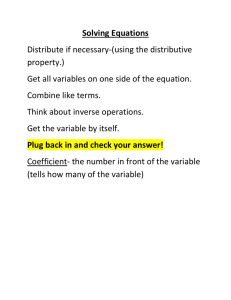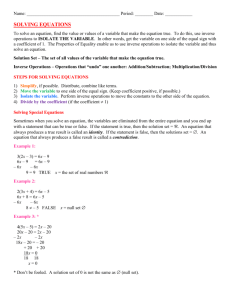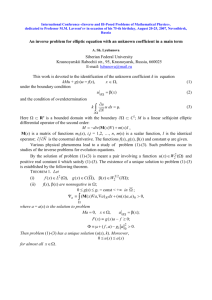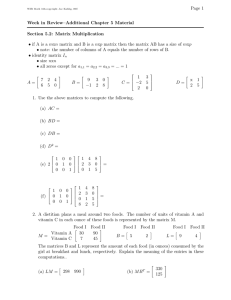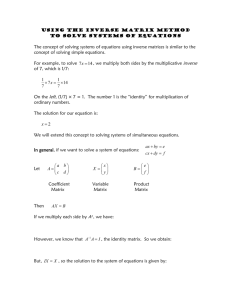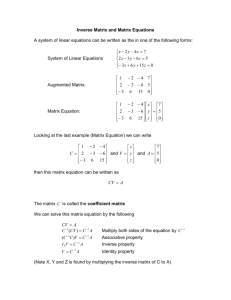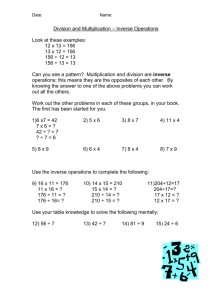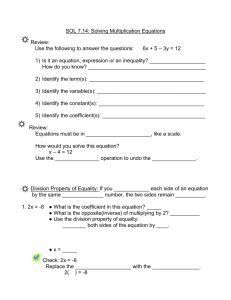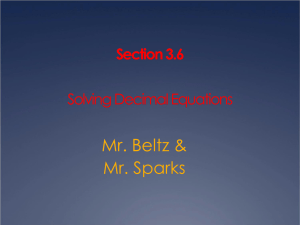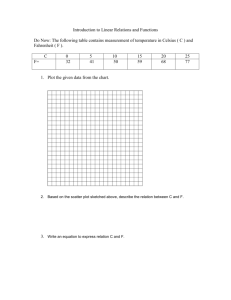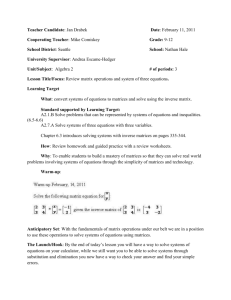Inverse Matrices & Systems of Equations Worksheet
advertisement
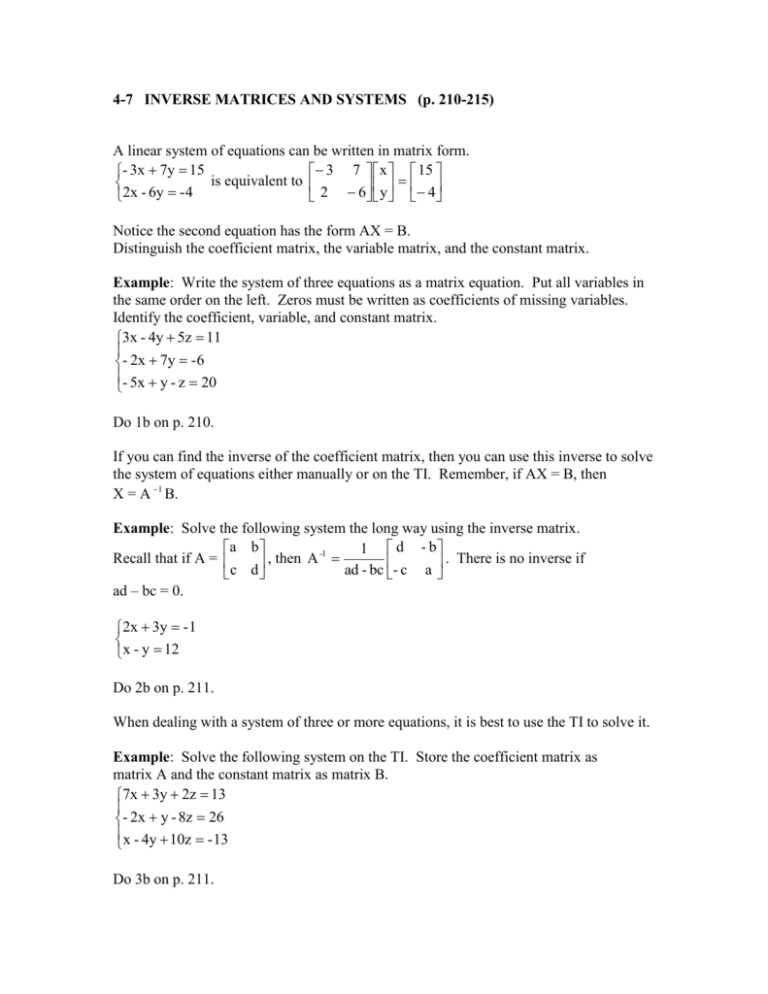
4-7 INVERSE MATRICES AND SYSTEMS (p. 210-215) A linear system of equations can be written in matrix form. - 3x 7y 15 3 7 x 15 is equivalent to 2x - 6y -4 2 6 y 4 Notice the second equation has the form AX = B. Distinguish the coefficient matrix, the variable matrix, and the constant matrix. Example: Write the system of three equations as a matrix equation. Put all variables in the same order on the left. Zeros must be written as coefficients of missing variables. Identify the coefficient, variable, and constant matrix. 3x - 4y 5z 11 - 2x 7y -6 - 5x y - z 20 Do 1b on p. 210. If you can find the inverse of the coefficient matrix, then you can use this inverse to solve the system of equations either manually or on the TI. Remember, if AX = B, then X = A 1 B. Example: Solve the following system the long way using the inverse matrix. a b 1 d - b Recall that if A = , then A -1 . There is no inverse if ad - bc - c a c d ad – bc = 0. 2x 3y -1 x - y 12 Do 2b on p. 211. When dealing with a system of three or more equations, it is best to use the TI to solve it. Example: Solve the following system on the TI. Store the coefficient matrix as matrix A and the constant matrix as matrix B. 7x 3y 2z 13 - 2x y - 8z 26 x - 4y 10z -13 Do 3b on p. 211. You can use matrices of systems of equations in the business profession. Example: The Volunteer linen shop has sheets and towels on sale for the upcoming football bowl game. Amy buys 3 sheets and 5 towels for $137.50. Travis buys 4 sheets and 2 towels for $118.00. Write the corresponding system and matrix equation. Find the price of each item. Use the TI. Let x = the price for a sheet $22.50 Let y = the price for a towel $14.00 Do 4 on p. 212. When the coefficient matrix of a system has an inverse, the system has a unique solution. When the coefficient matrix does not have an inverse, the system does not have a unique solution; it has either no solution or an infinite number of solutions (and you can not tell which applies by just using the TI). Example: Write the coefficient matrix for each system. Find its determinant to see whether the system has a unique solution or not. 12x 8y -3 1. 3x - 7y 50 4x - 2y 7 2. - 6x 3y 5 Do 5a,b on p. 213. Homework: p. 213-215: 5,11,13,16,21,22,25,27,33,37,38,43,45,46,51,53,56 37. Let x = length y = width x 2y 2x 2y 840 Note: 4-8 Augmented Matrices and Systems (p. 217-223). This section can be skipped.
